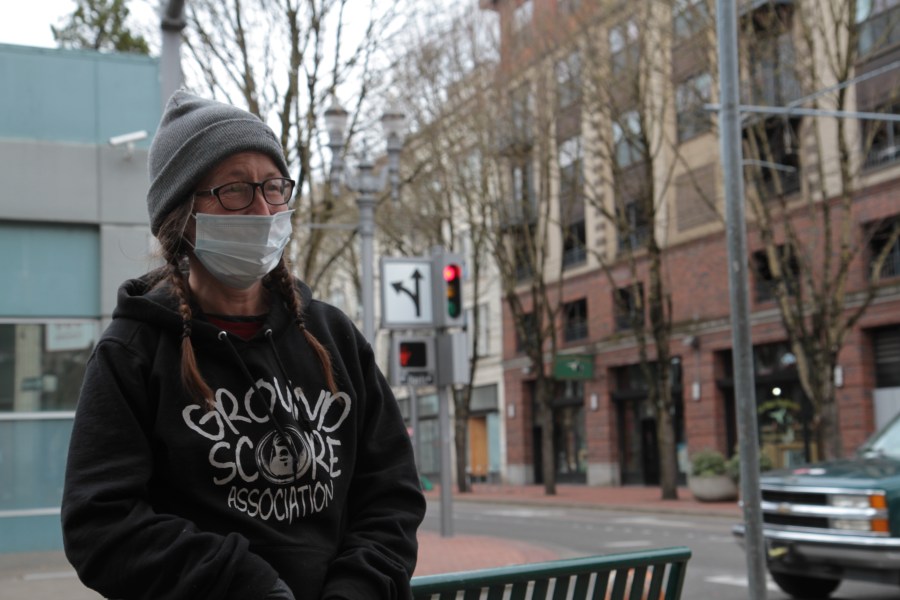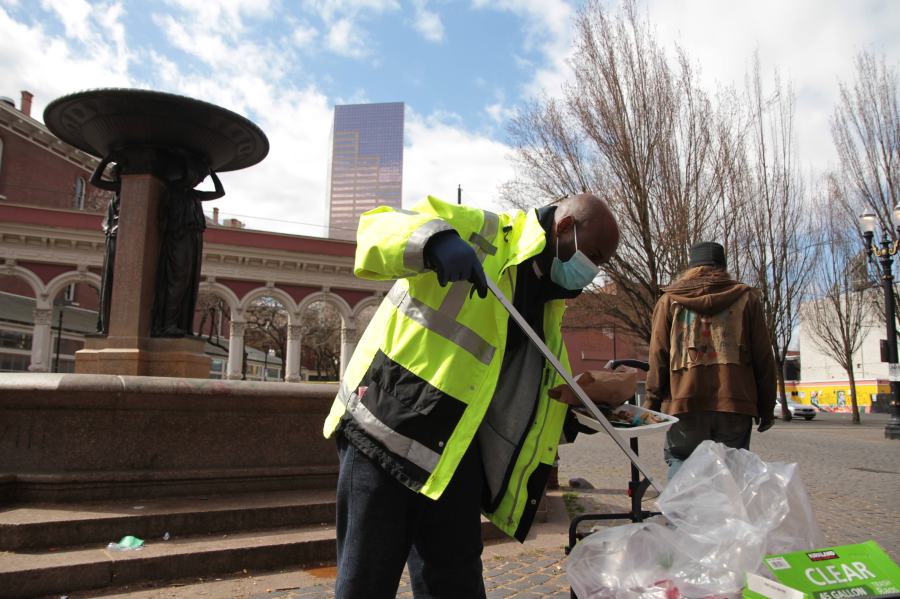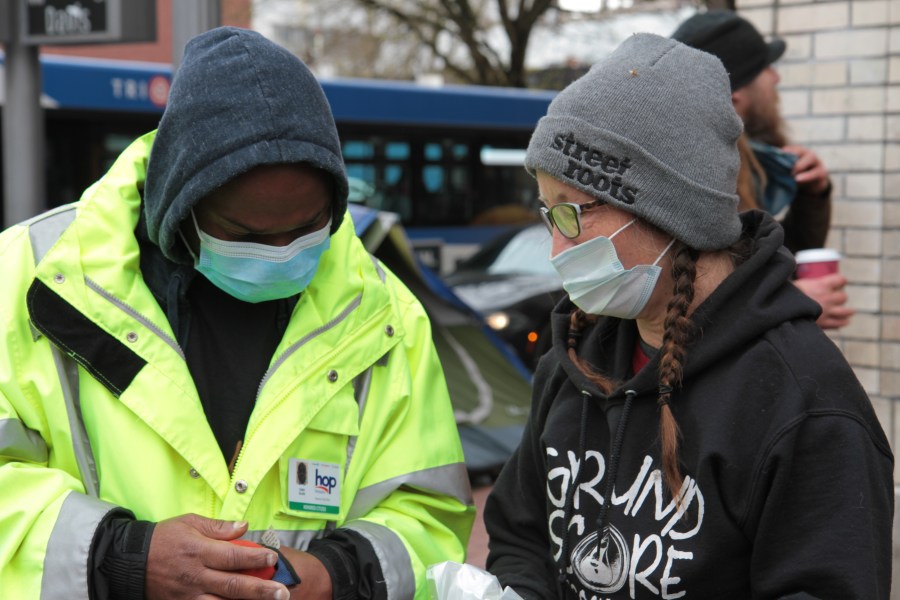PORTLAND, Ore. (KOIN) — A peer-led trash collection program in Portland is filling the city’s need of eliminating inner city trash and near urban campsites while also providing low-barrier employment to those who are low income.
The peer-led program, Ground Score Association, has already picked up nearly 10 tons of trash in a fairly small area of central city Portland since starting their litter collection program in mid-February, the association’s Co-Founder and Coordinator, Barbie Weber, told KOIN 6 News.
“It’s not just about picking up trash, but it’s having opportunities that best fit the ups and downs of being economically challenged,” Weber said.

Ground Score Association is but one program under Trash for Peace, a 501c3 nonprofit organization.
Ground Score Association coordinators are paid $25 per hour, while the workers are paid $20 per hour. The funding for those paid positions is made possible through the City of Portland’s Homelessness and Urban Camping Impact Reduction Program.
There are about 30 individuals who are employed in the program, about half of whom are experiencing homelessness themselves, Weber said. Most work on a part-time basis, about two to four hours per week.
“You find that when a person aids in their own survival, it’s an impact, it’s a personal impact. And you’re less likely to make decisions that don’t work,” Weber said.
In terms of where the program picks trash up, it is concentrated mostly to near Old Town/Chinatown and the Lloyd District. Weber said 19,709 pounds of trash was collected in that space over a period of about two months.
Weber said the program is intentionally flexible and accommodating to people’s schedules and needs.
“I have a walker and I’m able to do this with a walker. And it’s amazing that I get a chance to do this with a walker,” said Heather Duffield, a Ground Score worker on disability that lives in low-income housing.
“I think giving back and making the homeless people feel like they belong, that they’re welcomed…it’s really a important part of healing,” Duffield said. “And getting through all this COVID stuff. And just the homelessness thing all together.”

In addition, the program seeks to create inroads for the workers who want or are able to pursue permanent employment elsewhere.
“We do want to create more pathways for formal employment. So all of our coordinators are…our payroll employees,” said Laura Kutner Tokarski, Trash for Peace’s Director. “And again recognizing that this really needs to be as low-barrier as possible, even though many of our workers, as a result, are independent contractors.”
Tokarski said the nonprofit is currently building in a social protection fund for the workers so they can receive a certain level of benefits, too.
“If someone is sick and can’t make their shift, we can still be able to provide some support. And that’s something that we are working on building into the program,” she said.
Katie Lindsay, program coordinator for the city’s Impact Reduction Program, explained that trash clean up can be very challenging due to it being jurisdictional. For instance, she said, even if someone living in an urban campsite could pay a monthly fee to have their garbage removed by traditional sanitation services, they don’t have an address and so that traditional route is just not possible. Ground Score Association makes trash pick up at urban campsites a regular occurrence for the parts of the city they cover.
“And so this is meeting that need and it’s also a population of, like, workers who have the skillset to work with our houseless population, which some folks don’t have that skill set,” Lindsay said. “And so it’s, I think, recognizing that there’s a skilled group of individuals who has the ability to fill a gap in service and compensating them for doing that work.”
Though the litter program within Ground Score Association was only launched two months ago, Weber co-founded the group two years ago and there are now about 100 members. Besides the litter program, the association also has a container redemption service, called the People’s Depot.
Ground Score was initially formed in order to provide low-barrier job opportunities for environmental workers, in particular those who informally collect and sell discarded materials for a living, such as people who collect cans and bottles to recycle for a nominal reward.
Weber said she is technically experiencing homelessness as she has lived at a self-managed camp, Hazelnut Grove village in North Portland, for the past year.

“So to me, I’m housed, I don’t consider myself unhoused anymore,” she said. “I’m growing in my life. And, you know, meeting goals that I’ve been dreaming about for years and planning for.”
Weber said she hopes a program like Ground Score will foster a little bit more understanding between the houseless community and the general population.
“And coming from my side, I had a really good job. I was a marketing manager. I owned a home. I didn’t fall into homelessness because of any addiction issues, I fell in because of economic reasons. I went homeless in 2015, in January 2015. And it’s been a long road,” she said.
So far, she said many in the business community in downtown Portland have had a positive reception to the program, as evidenced by a local auto body shop owner giving a friendly wave or chat to the clean-up crew as they pass by his garage on their regular route.
“The better you take care of the most vulnerable people in the city, the better the whole city will be. Because it works from the ground up. You know, happier people will make happier people.”